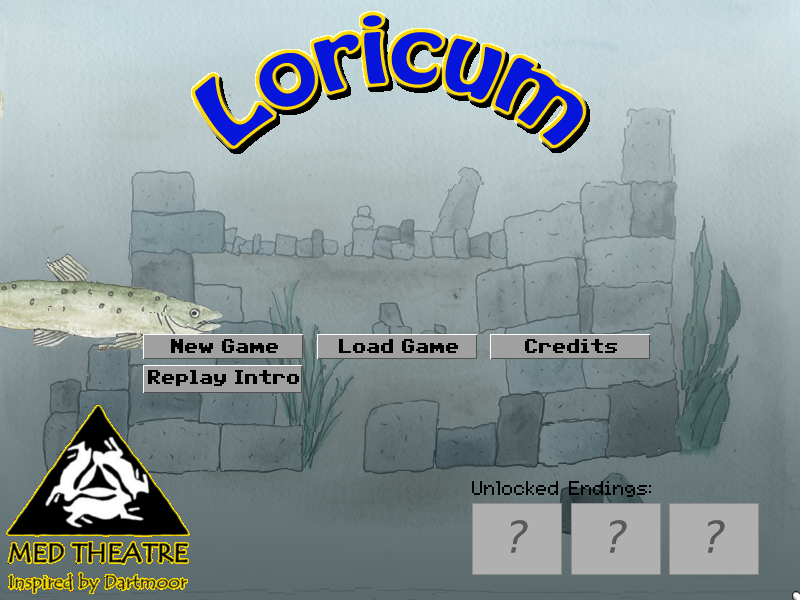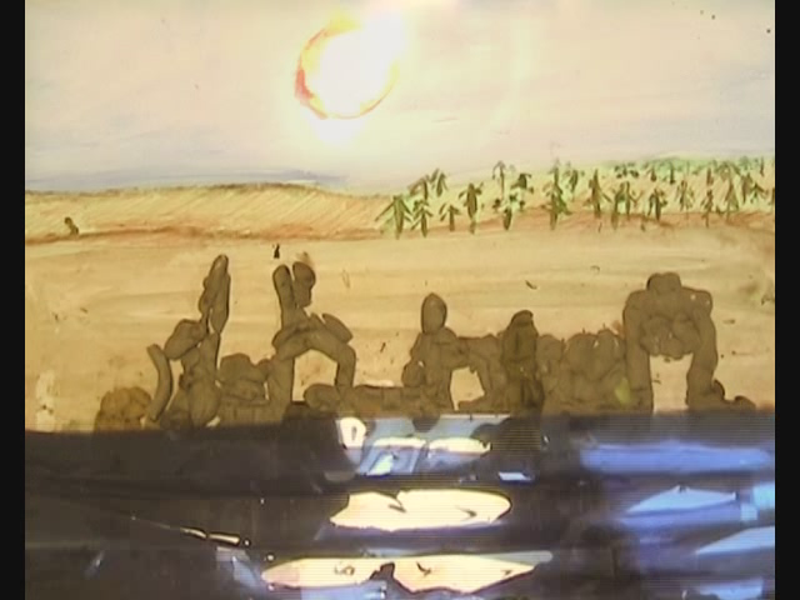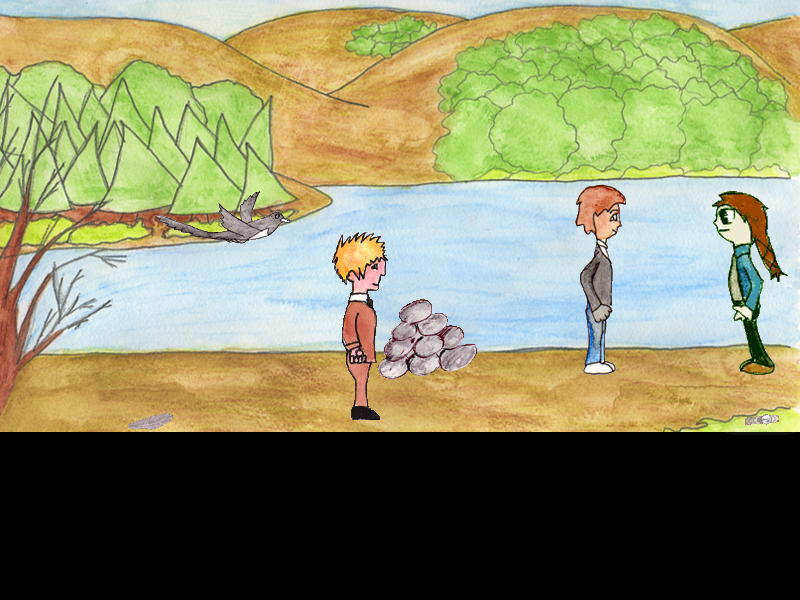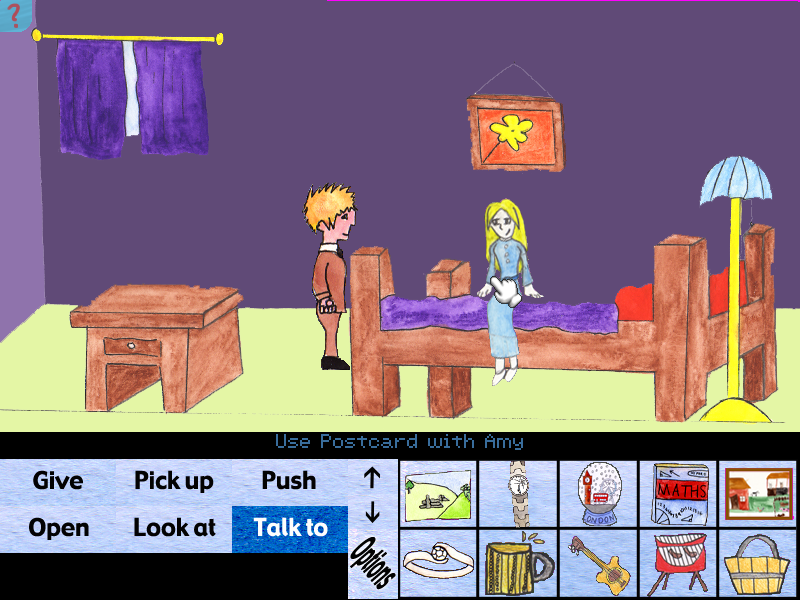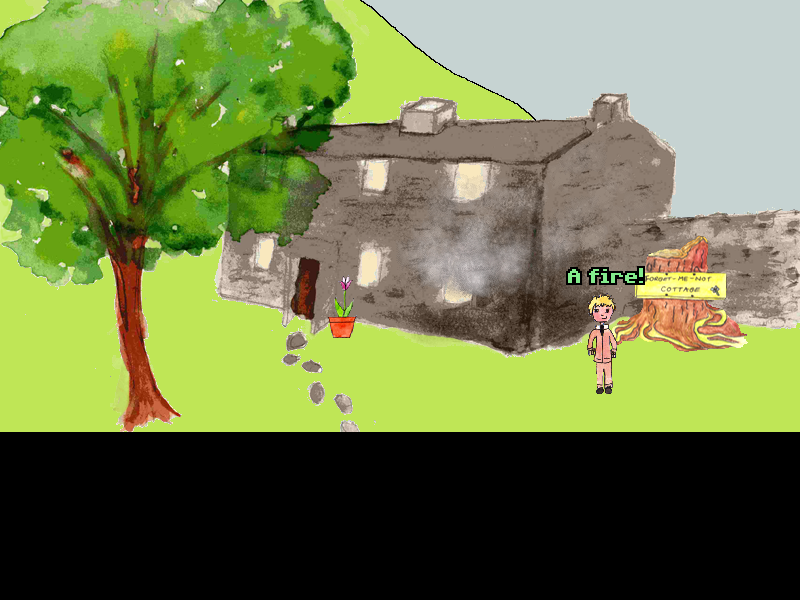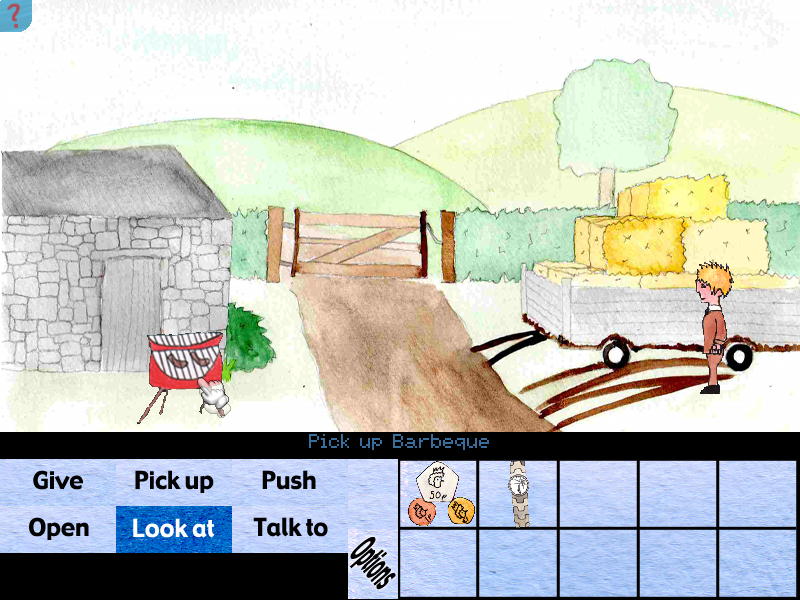Loricum - The Video Game
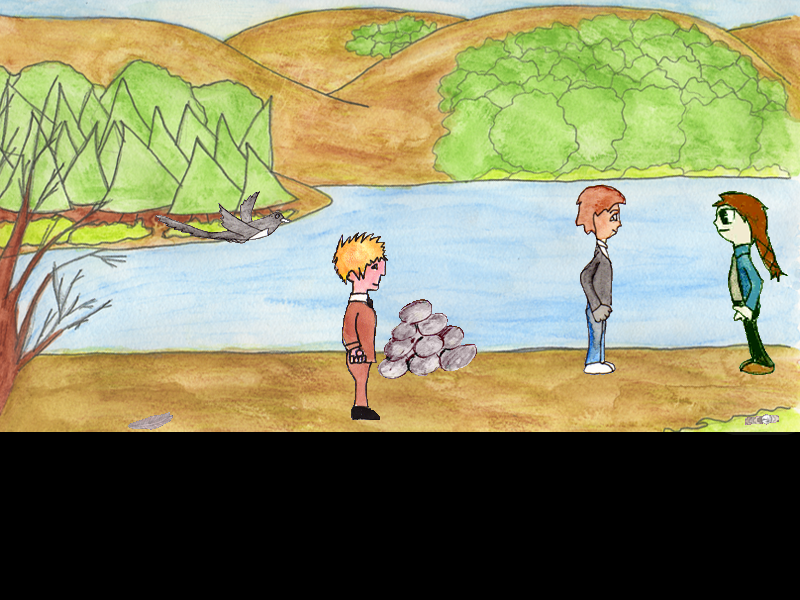
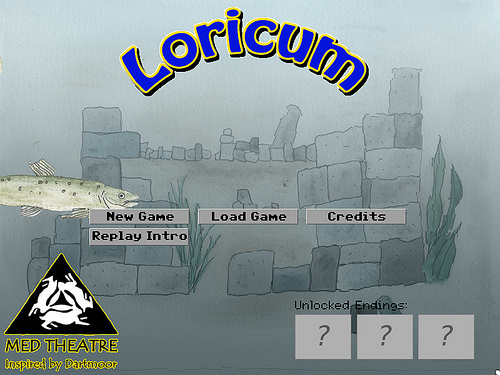
What is Loricum?
Loricum is a point and click adventure game created entirely by a group of young people aged between 13-18 years old.
I'm very proud to have been the leading mentor on this project, teaching the youth group basic game design, how to create working graphics and finally a rather intense number of days teaching them a well-developed programming language.
Some Press coverage:
Made possible by Med Theatre
Continue reading for my summary and discussion of the project.
Looking at previous similar projects
An important part of the project for me, was to make sure that the young people were genuinely doing all the work themselves and taking away valuable skills from the time they spent working on the game. Through some long research, I found a couple of similar projects teaching young people to make games, that usually lasted the whole space of 2 days - which suggests to me that none of the people involved actually learnt real computing and their mentors just popped everything together quickly.
Other similar projects feel a little short-sighted. They often are only interested in making a half-decent looking video game and there is no real consideration for actually giving these young people skills, which in my opinion, is a waste of time and does nothing but boost the portfolios of the people teaching. So, this project was set to not just make a video game, but to actually give these young people genuinely useful skills that will stay with them for the rest of their life.
Free is the new expensive premium
One thing I made clear throughout the project, is that everything we were doing is using completely free, easily available software from the internet. You don't need a wallet with thousands of pounds floating about to start creating something yourself. This zero-budget software and development tools are a key source of inspiration, so that these young people can use their new skills to create video games themselves with no extra cost - apart from a bit of spare time.
Software used:
- Adventure Game Studio (video game creation package)
- The GIMP (image editing package)
- Miro Video Converter (converting video to the legally sound .OGV)
- Dropbox (quick file sharing)
The choice of video game development software
I'll say it very quickly, I am a nerd. I've been writing my own small video games since I was 10 years old, so I know the majority of game development software available.
- 3D Game Maker
- £4-5
- Makes very limited basic 3D video games using a small selection of pre-build 3D models.
- No room for expansion beyond small set of pre-defined choices
- No programming
- Game created in about 60 seconds
- Game Maker (now part of Yoyo games)
- Free ($25 for pro edition, which unlocks the more complex and advanced features)
- Perfect for beginners
- Drag-and-drop symbols
- Features a well developed programming language when you want to make more advanced games
- Perfect for making a quick game
- Adventure Game Studio
- Free
- Limited (ish) to point and click games - although there are examples of people creating other types of games with it
- Requires some basic programming knowledge
- Well supported with lots of interesting community supplied plugins
- Extremely flexible through the programming language, although has some complex quirks that make it occasionally challenging for newcomers to programming.
- Unity
- Free (Pro editions .880+)
- Uses a much more advanced programming language
- Requires a lot more graphically advanced skills
- Can create excellent 3D games that will run on a wide range of computers
- Definitely not recommended for people with limited programming knowledge (a good understanding of C# is best)
The Adventure game studio was chosen because it was already designed for the type of game we were aiming for and it offered a reasonably simple language that could be taught. I'd certainly not recommend it for somebody learning programming on their own for the first time, but it was perfectly suitable for this project.
The Art
The artwork for this project was really fun to see being created. My biggest worry for this project (as is with every project I ever do) is that the graphics will look terrible. It's very hard to maintain a consistent style that's maintained throughout the game. However, with this game, we seem to have succeeded in making the graphics look not half-bad.
Everything was drawn/painted by the young people during a selection of art workshops. Using some of the created artwork and some additional artwork, some stop-frame animations were also created for key parts of the game - which also look fantastic. It was a real joy when we first scanned in our main character and programmed him into the game to walk around. It's quite indescribable to see something you drew a few hours previously suddenly walking around the screen.
Additionally, the beginning of the video game features a short live-action video piece filmed and edited by the young group. It was great to see so many different kinds of media come together in this project and was nice to see the people involved acting out the parts too.
The Original Music & Story
Loricum is actually based on a play that was written a number of years ago. So, this brought up some interesting topics for discussion during the initial design. How do you take an already linear story and produce an explorable world? The group were very keen to add multiple endings and all sorts of interactive elements, so we had to take the original story and modify it a great deal.
In the original play, there was one character, Leon, who interested me for the game. As a journalist, he was the perfect candidate for the main character. In video games, the player is almost always tasked with the job of exploring his surroundings, so who else than a journalist to perfectly match the intentions of the player? After much discussion and reading of the original play, we created a story line related to his events in the original play and expanded them out to add more puzzle-related events for the gameplay.
Luckily, the original play also came with a few discs of music that had been written and recorded. So this made a great task of listening to the tracks and placing them into the right places in the game. Of course, music specifically written for a specific game would fit far better, but it created a nice discussion as to which music fitted which areas and choosing how to balance the tracks throughout the game.
Conclusion
I couldn't be any prouder of the young people involved with creating Loricum. It took us a lot of time to create the game and I can honestly say that the group themselves have made every important part of this game, from the script, artwork, game logic, dialog and programming.
It's been a learning curve for everyone involved. I certainly struggled to find any guidance on how to teach young people programming, which experience has now taugt me to just get them coding. The best way to learn is to get it wrong a few times, they get the hang of it quickly by just giving it a go with occasional advice and guidance from the mentors.
